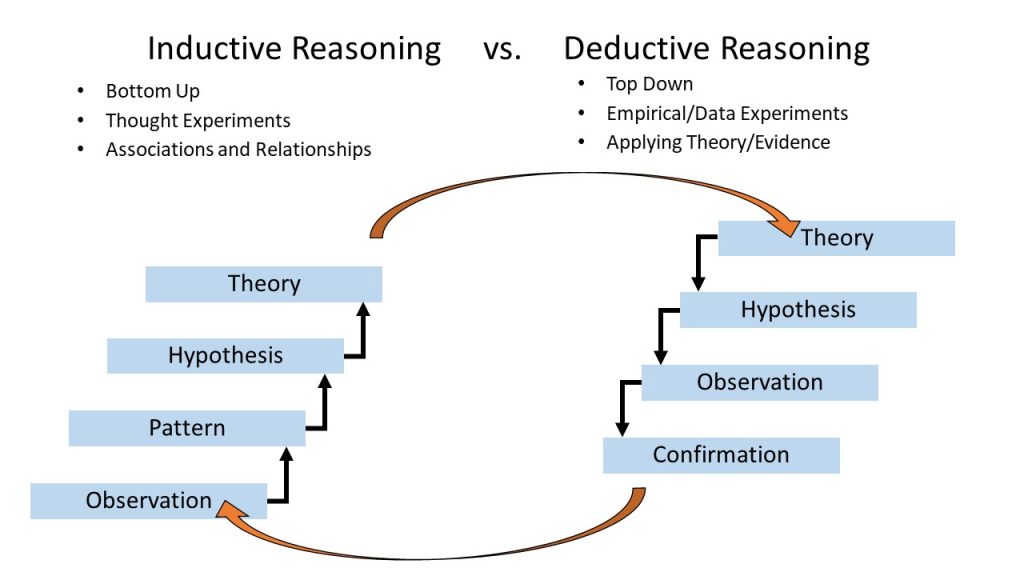2.1 The Process of Science
Science (from the Latin scientia, meaning “knowledge”) can be defined as the systematic study of the structure and behavior of the natural world using observations and experiments. It becomes clear from this definition that the application of the scientific method plays a major role in science. However, the scientific method is one of many methods of knowledge acquisition based upon the use of logic and reason.
Logic and Reasoning, or, Asking the Right Questions
Before embarking on any research, we must decide upon a question. This can happen one of two ways, inductive reasoning or deductive reasoning. In both cases, anthropologists do extensive reading and pre-writing in order to organize their thoughts, formulate their questions, and decide upon the best methods to find useful answers.
The graphic below shows how inductive reasoning and deductive reasoning regularly inform the other. With inductive reasoning, the process begins with an observation, maybe even an anecdote. From there, the scientist begins to look for or casually notice patterns. This can lead to a hypothesis which might be tied to an existing theory or result in the creation of a new one. This is a bottom-up approach, where an observation leads to thought experiments resulting in hypotheses that can be tested.
Alternatively, deductive reasoning is a top-down approach that uses theoretical frameworks and existing data to develop new questions. These questions then become hypotheses which can be empirically tested. Those tests result in observations (data sets) that either confirm or reject the hypothesis tested. These studies can work to further refine our understanding of how theory works in the really real world.

One important note about developing research questions and studies – if your beginning position is biased, that is, if you begin a research project to prove something, the entire process will be biased. You will read different background information, create different hypotheses, and even bias your results through the design choices you make. For this reason, scientists often work in collaboration with others or pass their ideas by trusted individuals.
The intellectual and practical activity encompassing the systematic study of the structure and behavior of the physical and natural world through observation and experiment.
The process of inferring a general law or principle from the observations of particular instances. (Oxford English Dictionary)
Using knowledge about things that are generally true in order to think about and understand particular situations or problems.
based on personal observation, case study reports, or random investigations rather than systematic scientific evaluation; anecdotal evidence.
A supposition or proposed explanation made on the basis of limited evidence as a starting point for further investigation; an educated guess for the answer of a research question.

